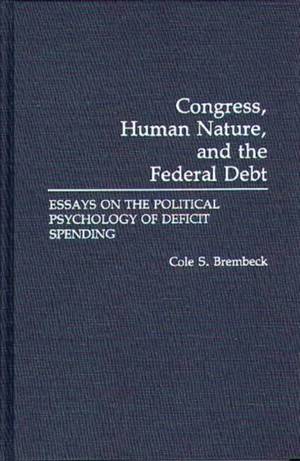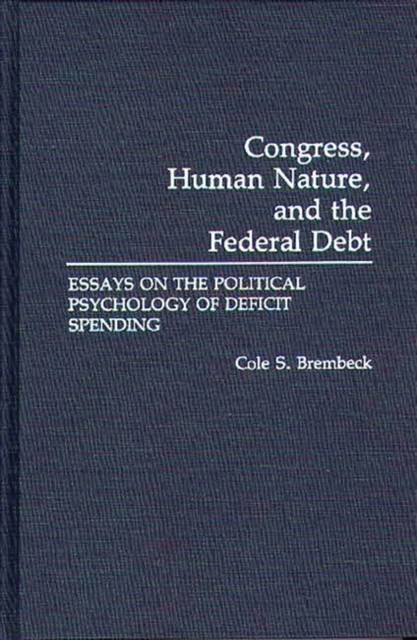
- Retrait gratuit dans votre magasin Club
- 7.000.000 titres dans notre catalogue
- Payer en toute sécurité
- Toujours un magasin près de chez vous
- Retrait gratuit dans votre magasin Club
- 7.000.000 titres dans notre catalogue
- Payer en toute sécurité
- Toujours un magasin près de chez vous
Congress, Human Nature, and the Federal Debt
Essays on the Political Psychology of Deficit Spending
Cole Speicher Brembeck
127,45 €
+ 254 points
Description
This volume takes a non-economic approach to the issue of the federal deficit. By identifying fiscal problems as merely the visible symptoms of a basic behavioral dynamic common to all people, Cole S. Brembeck undertakes a singular study of how human interests perpetuate the deficit and how, therefore, the deficit issue reflects the nature of the representation in the federal government. Solutions to the worsening deficit crisis can then be explored by shifting the primary focus away from money, budgets, and expenditures and toward people, power, and politics.
Fourteen essays discuss different aspects of the human factor in the federal debt by analyzing how members of the U.S. Congress spend public money. After establishing the relationship between money and human behavior (the psychological groundwork of the entire work), attention then turns to the human and political motivations that result in the incurring of debt and how Congress's monetary practices demonstrate the psychology of public spending. A subject that could constitute an attack on Congress receives fresh insight--rather than isolating Congress as a body with a unique propensity for spending, Brembeck acknowledges the relevant force that is a common human motivator. The work aims at redefining the central issue of the debt debate and concludes with proposals that may help to remedy the financial crisis, based on the premise that the federal debt is a human, not a fiscal, problem.Spécifications
Parties prenantes
- Auteur(s) :
- Editeur:
Contenu
- Nombre de pages :
- 192
- Langue:
- Anglais
- Collection :
Caractéristiques
- EAN:
- 9780275936747
- Date de parution :
- 30-05-91
- Format:
- Livre relié
- Format numérique:
- Genaaid
- Dimensions :
- 161 mm x 242 mm
- Poids :
- 471 g







